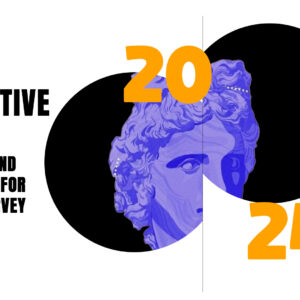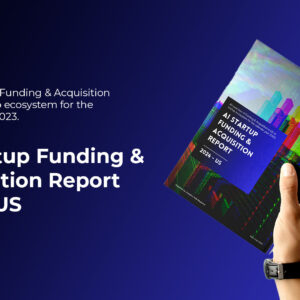Data engineering is a rapidly evolving field that is critical to the digital transformation strategies of modern businesses. The future of data engineering is not just about improving technical capabilities but also about transforming the way businesses understand, manage, and make decisions based on data. In this regard, the 2-day Data Engineering Summit 2023, held from April 27-28, served as a groundbreaking platform where leading engineers and innovators shared their expertise and innovative strategies, shedding light on how businesses can optimize their data frameworks.
One of the standout presentations at the Summit was by Vivek Sahabadi, Head of Data Analytics at Navi. With vast experience at some of the world’s leading tech companies, including Flipkart, OLX, Navi finserv, Amazon, and Apparel Group, Vivek presented a remarkable talk on the innovative concept of the data semantic layer and its significant implications for businesses across industries.
Vivek began his talk by highlighting the critical issue businesses are grappling with: the overload of big data. As businesses continue to collect vast amounts of data, the challenge lies in making sense of this data and extracting valuable insights to drive decision-making. A data semantic layer, according to Vivek, can be the game-changer in this regard.
Explaining the architecture of traditional data systems, Vivek detailed how Extract, Transform, Load (ETL) processes and Business Intelligence (BI) systems are utilized to manage data flow and ensure business continuity. However, he argued that this architecture falls short in meeting the evolving demands of businesses that are operating across multiple geographies and dealing with complex regulatory environments.
Here, Vivek proposed an innovative architectural modification: the incorporation of a data semantic layer. This layer acts as a central repository for all business definitions. Conceptually, it can be thought of as a “GitHub” for business definitions. It stores all business definitions and metadata and provides an easily accessible, centralized resource for all departments within an organization.
The advantages of a data semantic layer, as per Vivek, are numerous. Firstly, it promotes transparency. By having all business definitions in one place, every department has clarity on business processes, terminology, and metrics. This ensures a unified understanding across all teams, thereby reducing inconsistencies and misunderstandings.
Secondly, a data semantic layer facilitates ease of access to business definitions. With a centralized system, anyone from any department can easily access and understand business definitions. This drastically reduces the time and effort required to locate, understand, and apply business definitions in decision-making.
Additionally, a data semantic layer enhances operational efficiency. With a centralized repository, any changes to business definitions can be immediately implemented across all dashboards, data science models, and operating systems. This prevents delays and inconsistencies, enabling businesses to stay agile and make accurate, timely decisions.
Despite these advantages, Vivek acknowledged that implementing a data semantic layer does come with its challenges. These include handling complex edge cases, ensuring data quality, maintaining performance under high data volumes, and managing the additional costs associated with setting up and running the semantic layer. However, he argued that the benefits outweigh the challenges, especially for businesses operating across different countries where varying business practices and regulations can cause significant complications.
To illustrate his point, Vivek cited the example of Uber, a global tech giant. Uber, like many multinational corporations, faced issues with discrepancies in metrics reported by different departments. By integrating a data semantic layer, Uber was able to resolve these discrepancies, maintain consistency in their reports, and enhance their operational efficiency.
Towards the end of his talk, Vivek introduced tools like ‘q.js’ that can facilitate the implementation of a data semantic layer. He emphasized that as businesses continue to grow and data volumes increase, efficient data management becomes even more crucial. Tools such as ‘q.js’ can help businesses navigate this complex landscape and effectively implement a data semantic layer.
In conclusion, Vivek Sahabadi’s compelling talk at the Data Engineering Summit 2023 was not just a presentation but a call to action for data engineers. He emphasized that the future of data engineering lies in optimizing data frameworks and solutions to meet evolving business needs. The data semantic layer, as per Vivek, is key to unlocking this potential. He painted a vision of the future where businesses can efficiently manage, interpret, and leverage their data to drive decision-making and gain a competitive advantage.


















